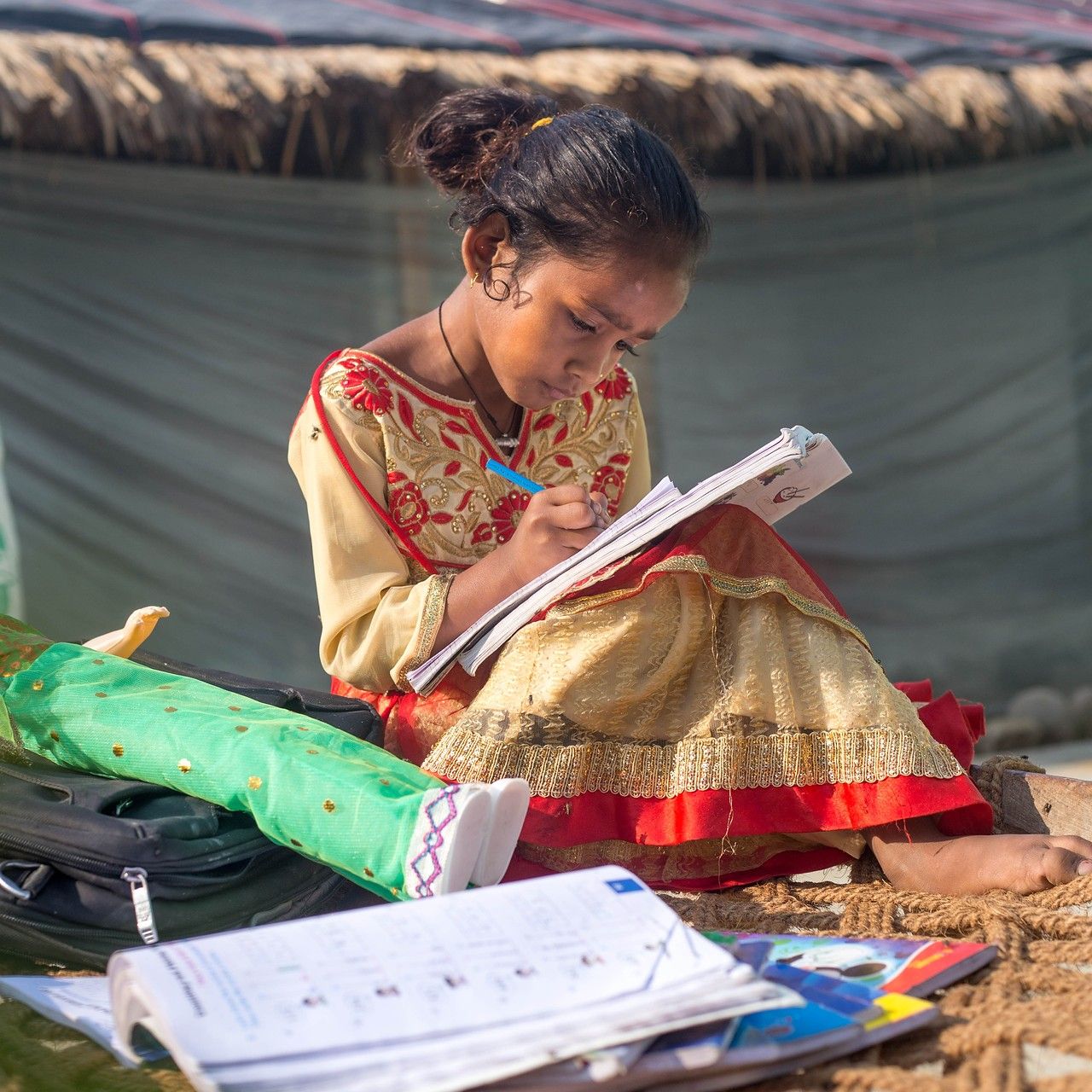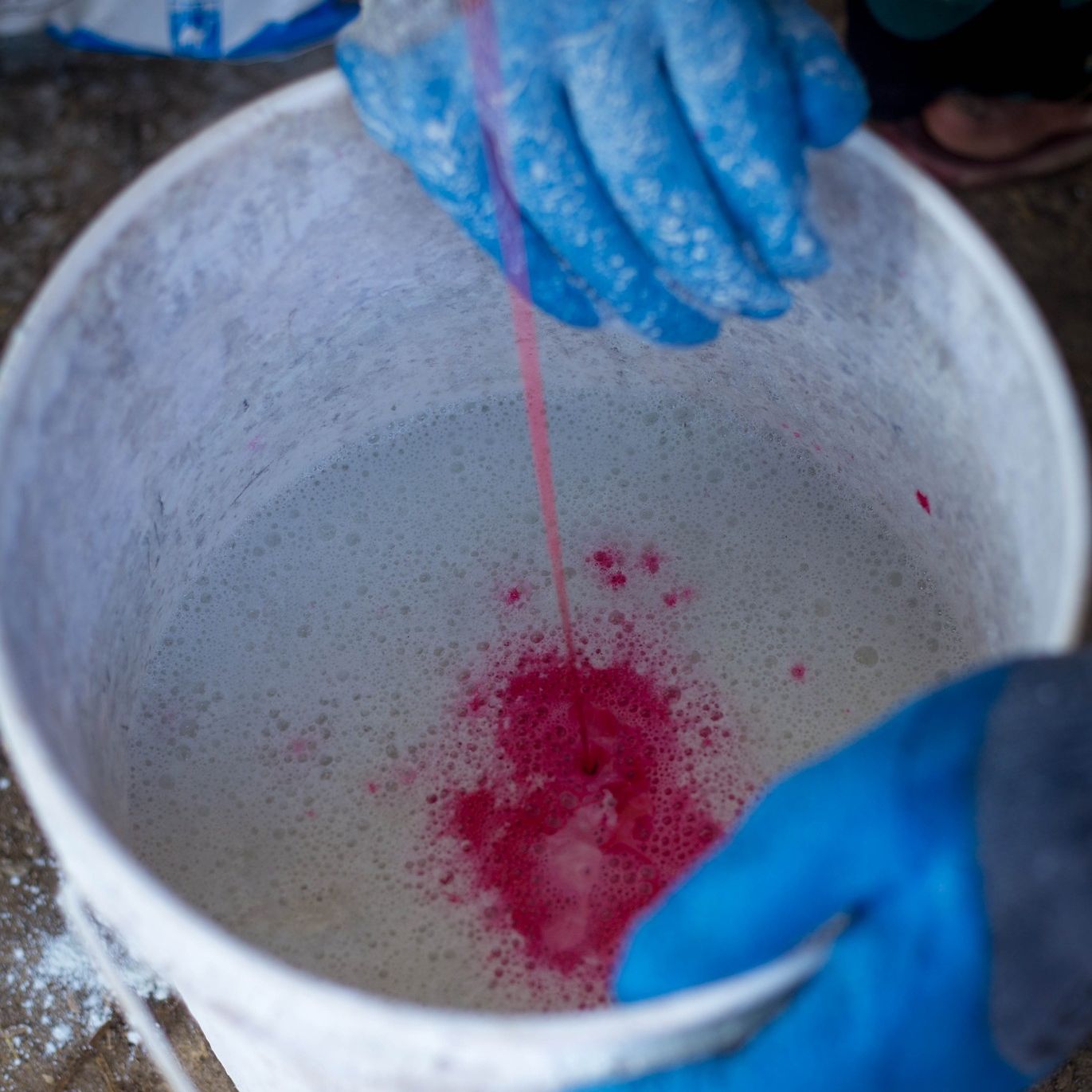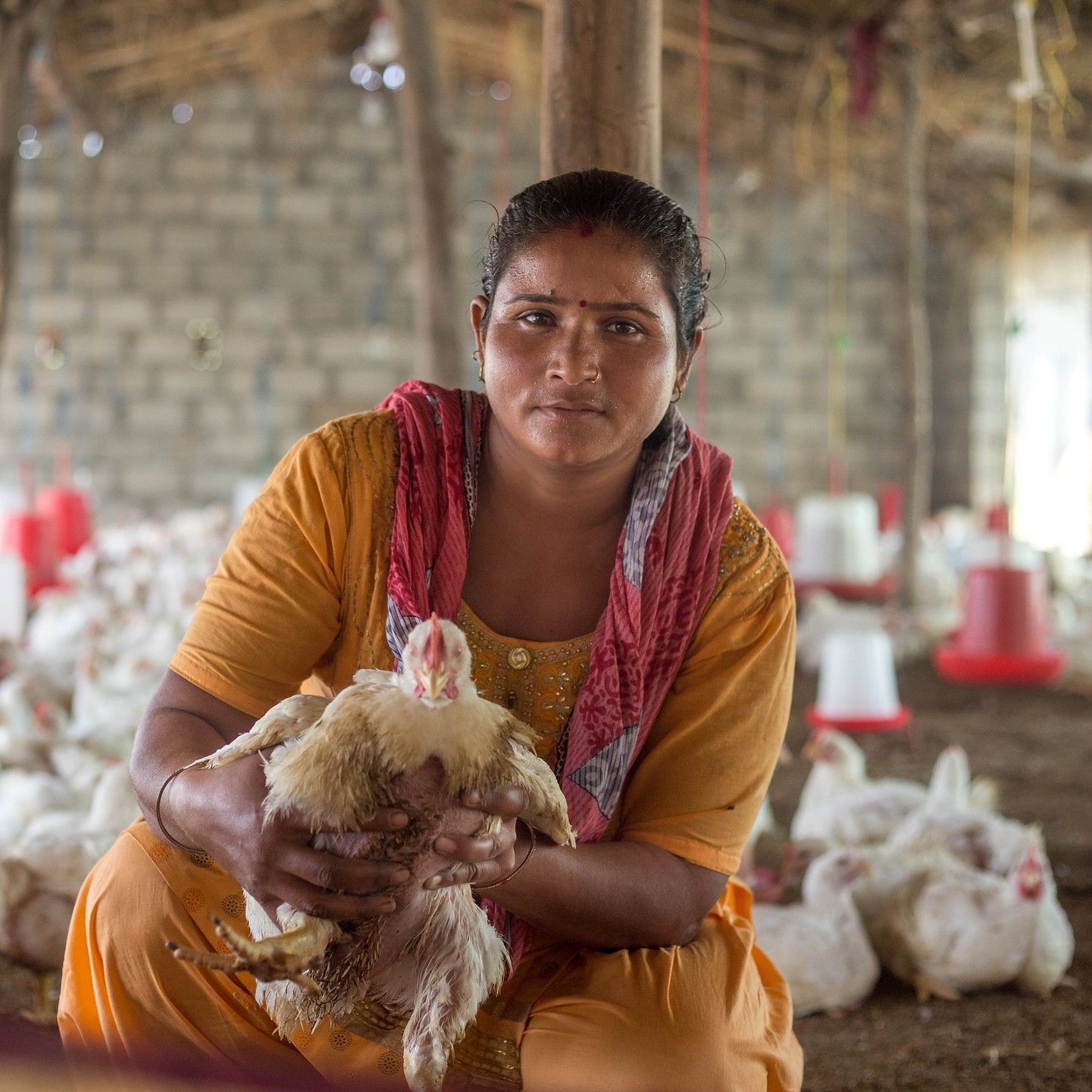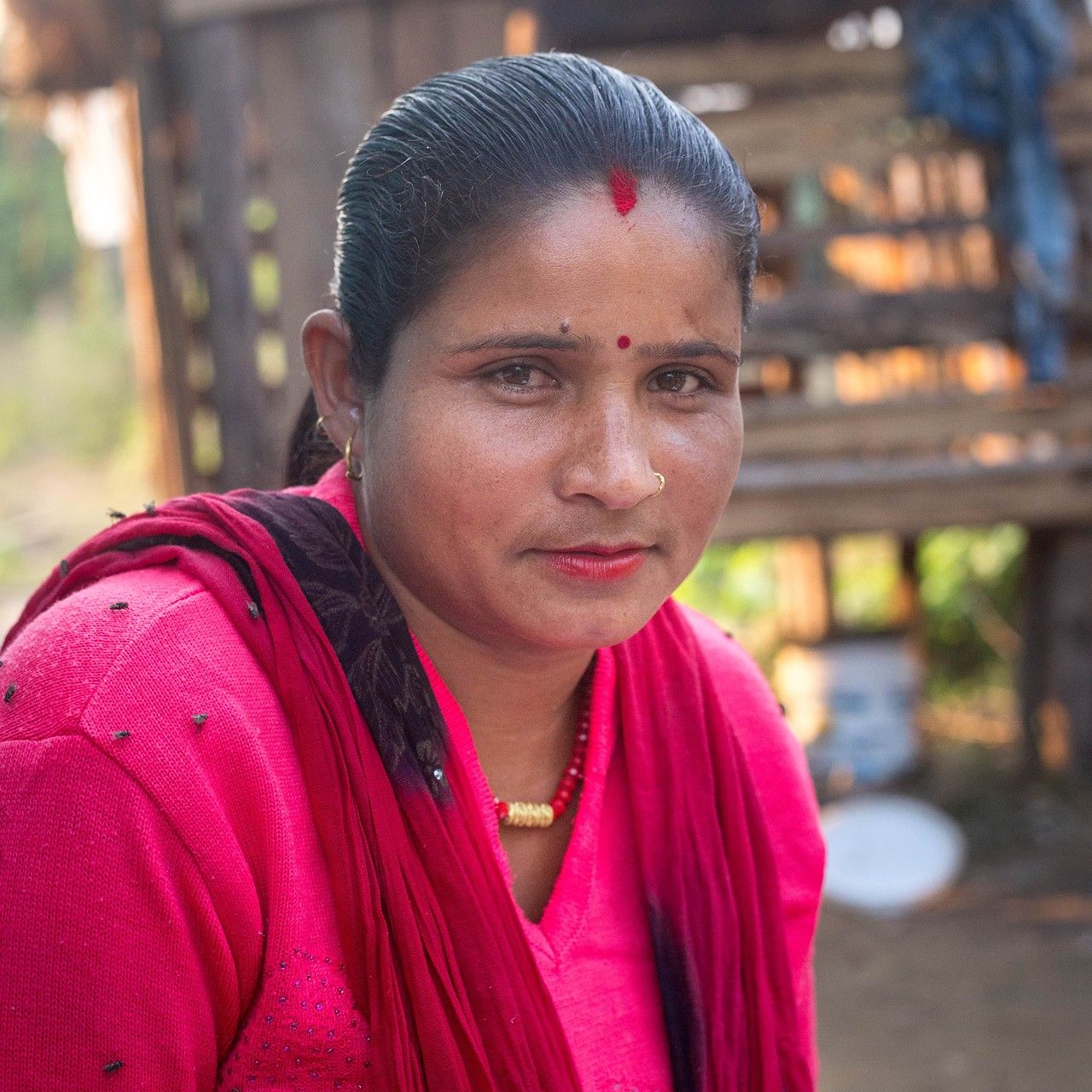
One of her proudest moments was when her income was high enough to support private schooling for her daughter.
The painter
Pushpa Lohar
“My income is now sufficient to pay for my daughter’s school tuition.”
Ambitious and resolute, Pushpa grew up in a community in which most families were involved in bonded labour. School was important for her parents. She and her brother were able to attend school and both of them completed secondary school.
Before the the Bridge project project, Pushpa worked under contractors who made her work long hours. When she heard about the training programme on painting, she jumped at the chance to change her life and gain control over her work.
Through the Bridge project, Pushpa completed a training programme on house painting and learned practical and useful techniques, such as how to mix colors more efficiently. Her income has risen along with her skills; her daily wage increased from $3.37 to $5.90. As a result, she no longer has to work under contractors and is able to take jobs on a more flexible schedule. She can even take holidays – a welcome change.
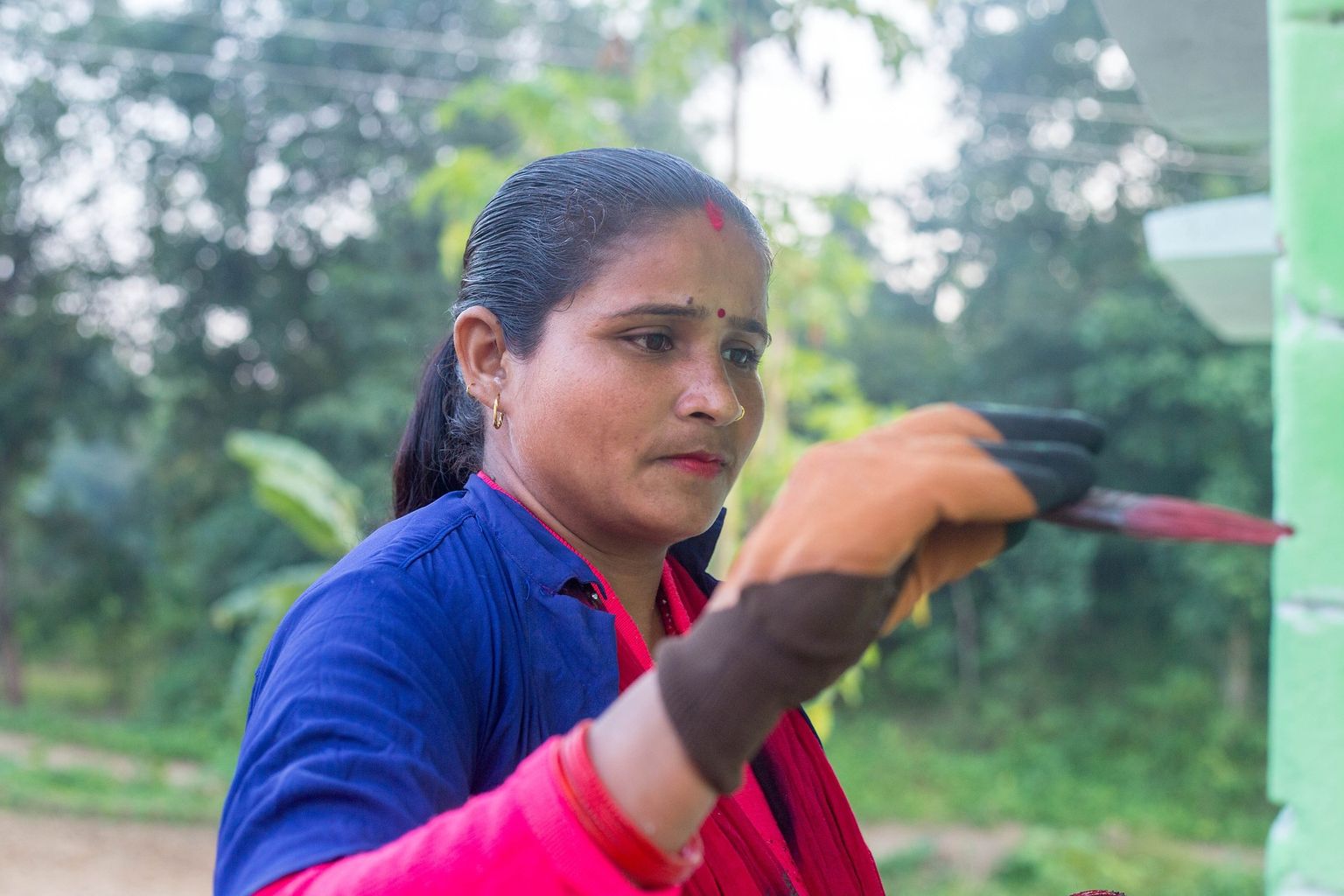
Today, Pushpa is a house painter, while her husband tends to a variety of farm animals: chickens, goats, rabbits and buffalo. Her day begins at 5 a.m., when she cooks and does household chores. Then, she laces up her shoes or grabs her bicycle and goes to paint.
When she looks around her village, though, she sees many children going to work in the brick kilns. She believes most of them are under the age of 15, and she knows that they’re doing dangerous work like breaking rocks and carrying heavy bricks. Pushpa is grateful that she can afford to send her 8-year-old daughter to school.
“Before taking the training, I had to depend on my husband to buy things. Now, since I started to earn, I can afford to spend my income to buy clothes, jewelry, and books for my daughter.”
One of Pushpa’s proudest moments was when her income was high enough to support private schooling for her daughter. She and her husband have already enrolled her in the best school in the village, but she has bigger goals. She wants the best for her child, and dreams of one day sending her to a prestigious school in the capital city.
Her personal plans for the future include opening a paint shop, building a network of women who were trained under the Bridge project, and encouraging them to use the paints available at her shop. She wants to enhance the painting business and continue to provide training for her peers.
Her faith motivates her to continue, even when life is difficult. She believes that it is impossible to fight against destiny, yet one should never lose hope, nor courage, nor sight of their ultimate raison d’etre.
“Everything I do, I do it for my daughter.”
